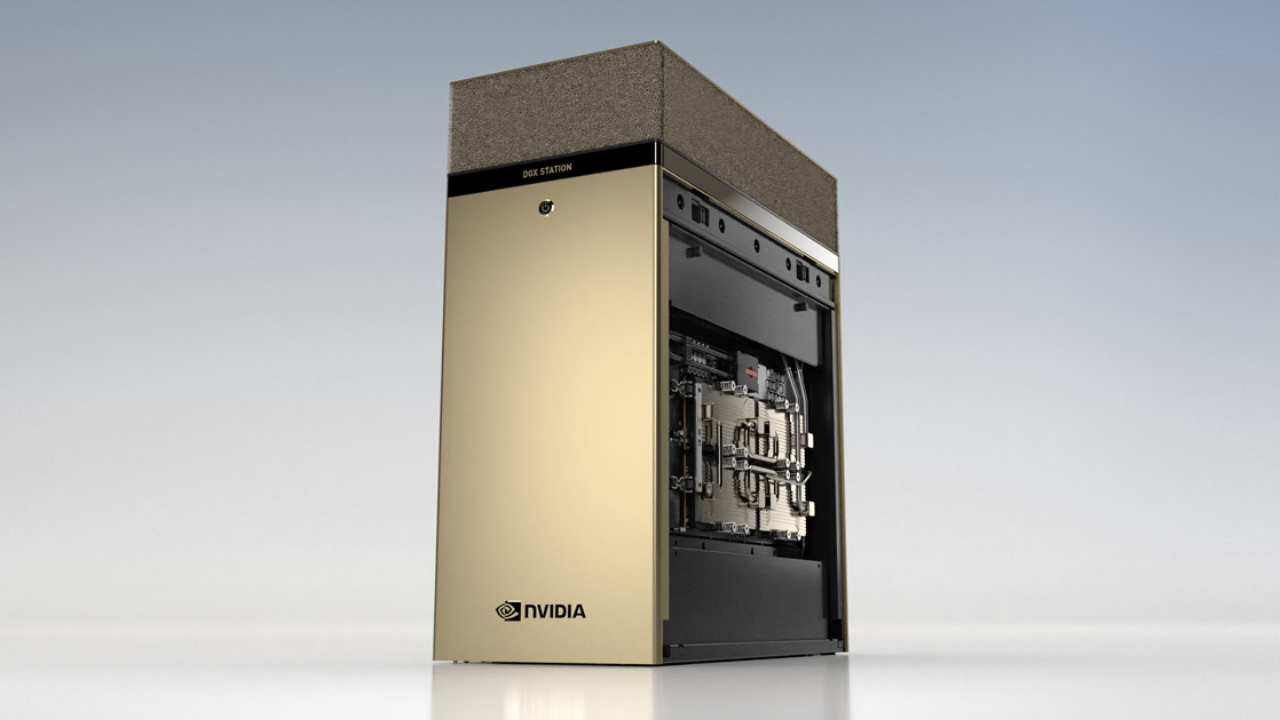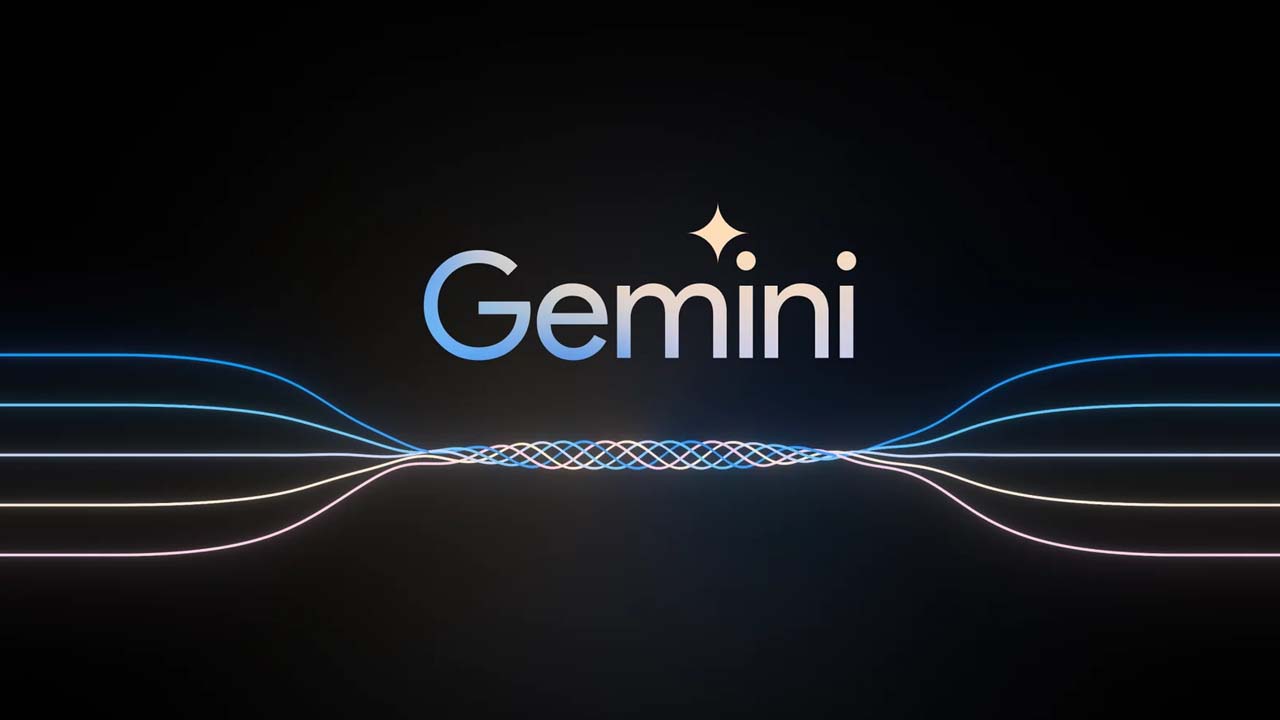Enterprise
Nvidia will now let you rent a DGX Station A100 mini supercomputer
It’s not meant for gaming though

Today, many services are based on a subscription model, whether it’s music streaming or ordering monthly coffee brew packs. Even the gaming industry is gradually moving to a subscription-based business. So, what’s left? How about subscribing to a plan that gives you access to a supercomputer?
Nvidia is trying to pull off a trend in the supercomputer world — selling them via a subscription model. The equipment is costly and requires a lot of upfront investment, discouraging smaller companies or individual developers.
Its DGX Station A100 is a new cloud-native supercomputer that delivers 2.5 Petaflops of AI training power & 5 PetaOPS of INT8 inferencing horsepower. It’s also unique to support MIG (Multi-Instance GPU) protocol, allowing multiple processes to execute faster. The computing resources can be shared with up to 28 scientists at once.
Each A100 system has dual AMD EPYC 7742 CPUs with 64-cores each, supports up to 2TB of memory, and has eight A100 GPUs.
A DGX SuperPod, on the other hand, consists of multiple DGX Station computers. They are AI supercomputers featuring 20 or more Nvidia DGX A100 systems and Nvidia InfiniBand HDR networking. Nvidia intends to open the world of AI to more enterprise customers for artificial intelligence, drug research, autonomous vehicles, and more.
The bare-metal server features 80 GB A100 Tensor Core GPUs, delivering 25 percent faster inference performance and two times faster data analytics performance. This rig clearly isn’t meant for gaming and is specifically designed for research, complex calculations, and content creation.
It’s the first time Nvidia is trying a subscription model, and it genuinely makes a lot of sense. GX Stations start at US$ 149,000, while the DGX SuperPod starts at US$ 7 million and scales to US$ 60 million. This makes it a herculean task for a small team to source the gear. A subscription starts at US$ 9,000 a month, and even though it may sound a lot for a “processor,” it isn’t.


The ongoing trade war between the United States and China is putting a lot of companies out of business in one country. While all eyes are currently on America’s crusade against TikTok, China has launched a salvo of its own. The country has started banning AMD and Intel, starting with government devices.
Recently, as reported by the Financial Times, China has introduced a new rule that bans American chipsets and servers from government agencies. The new ban includes AMD, Intel, and Microsoft Windows.
In lieu of the now-banned brands, Chinese government agencies must use approved brands from a list of 18 Chinese manufacturers. Unsurprisingly, the list includes Huawei, another brand involved in the ongoing trade war. (Huawei is still banned on American soil.)
As with bans from America, China’s latest rules stem from a desire to implement national security. Both countries allege that using brands from the opposing side will open a potential avenue for transferring classified information.
Currently, the ban against the American chipsets are only affecting government devices. However, if it follows the same trajectory as Huawei and TikTok in the United States, a government-only ban might soon lead to an all-out ban on consumer devices. As TikTok is currently hanging in the balance, it’s unlikely that the trade wars will cool down anytime soon.

So far, Apple’s greatest enemy has been the European Union. Months and months of claiming that the company engages in anti-competitive practices, the region has successfully caused Apple to drastically change a lot of things about the iPhone including the Lightning cable. Now, a new challenger wants Apple to answer for its supposed grip on the industry: the United States government.
Today, the Department of Justice is officially suing Apple for supposedly monopolizing the smartphone industry and stifling competition. The lawsuit alleges that Apple’s lineup of products prevent users from trying out other brands. For example, Apple limits how well a third-party smartwatch works on an iPhone, pushing users to go for an Apple Watch instead.
The lawsuit also includes an important pain point in Apple’s fight in Europe. It says that the company makes it difficult for iPhone users to communicate with Android users (and vice versa). Late last year, the company already committed to supporting RCS as a messaging standard, finally easing communication between the two systems. Their adoption has yet to arrive, though.
Though not as stringent as Europe, the American government is no slouch when it comes to questioning its own companies for pursuing anti-competitive practices. In the past, it went through Google and Spotify to protect the interests of its citizens. The lawsuit against Apple is no different, gathering signatures from sixteen states.
For Apple’s part, the company aims to get the case dismissed, alleging the lawsuit’s unfair scope of just the American people when it targets the entire world.
SEE ALSO: Apple opens first Developer Center in Southeast Asia

With how technology is these days, it’s no surprise that the next big thing is always just over the horizon. However, these developments often happen year after year. Today, artificial intelligence is strapping a rocket to this already fast trend. Only a few months since the launch of Gemini, Google has already launched its successor, Gemini 1.5.
Launched only recently, Gemini is a marvel in itself. Prior to the model, Google was already a force in the AI world with Bard. Gemini takes the former model and improves an already impressive service. Currently, users — both in business and for personal use — can subscribe to the service.
Today, Google has confirmed that Gemini 1.5 is official. The company is touting how much more impressive the new version is, compared to its predecessor. For one, Gemini 1.5 Pro is just as powerful as the current Gemini Ultra, beating the latter on 87 percent of tests. The new version is reportedly more efficient in allocating only the necessary resources for queries, rather than the entire model.
Despite allocating resources, Gemini 1.5 can handle a million tokens at a time. For reference, Gemini Pro can only handle 32,000 tokens at a time. Basically, the new version can parse through a humungous chunk of data all at once without batting a digital eye. (Google is claiming that capabilities for 10 million tokens is nearing, too.)
If you want to see what a million tokens in the palm of your hand feels like, Gemini 1.5 is already available for developers and business users. However, a wider rollout is still coming soon.
-

 Accessories2 weeks ago
Accessories2 weeks agoApple Vision Pro Review: Two Months Later
-

 Features4 days ago
Features4 days agoFortify your home office or business setup with these devices
-

 Gaming1 week ago
Gaming1 week agoThe Rogue Prince of Persia looks like an ultra-colorful roguelite
-

 Philippines2 weeks ago
Philippines2 weeks agovivo Y100 to release in Philippines on April 27
-

 Deals2 weeks ago
Deals2 weeks agoSamsung Awesome April: Deals on Galaxy A series
-

 Gaming1 week ago
Gaming1 week agoStar Wars Outlaws release date revealed
-

 Accessories1 week ago
Accessories1 week agoLogitech unveils G Pro X 60 gaming keyboard: Price, details
-

 Events1 week ago
Events1 week agoStellar Blade: PlayStation taps cosplayers to play Eve for game’s launch

























